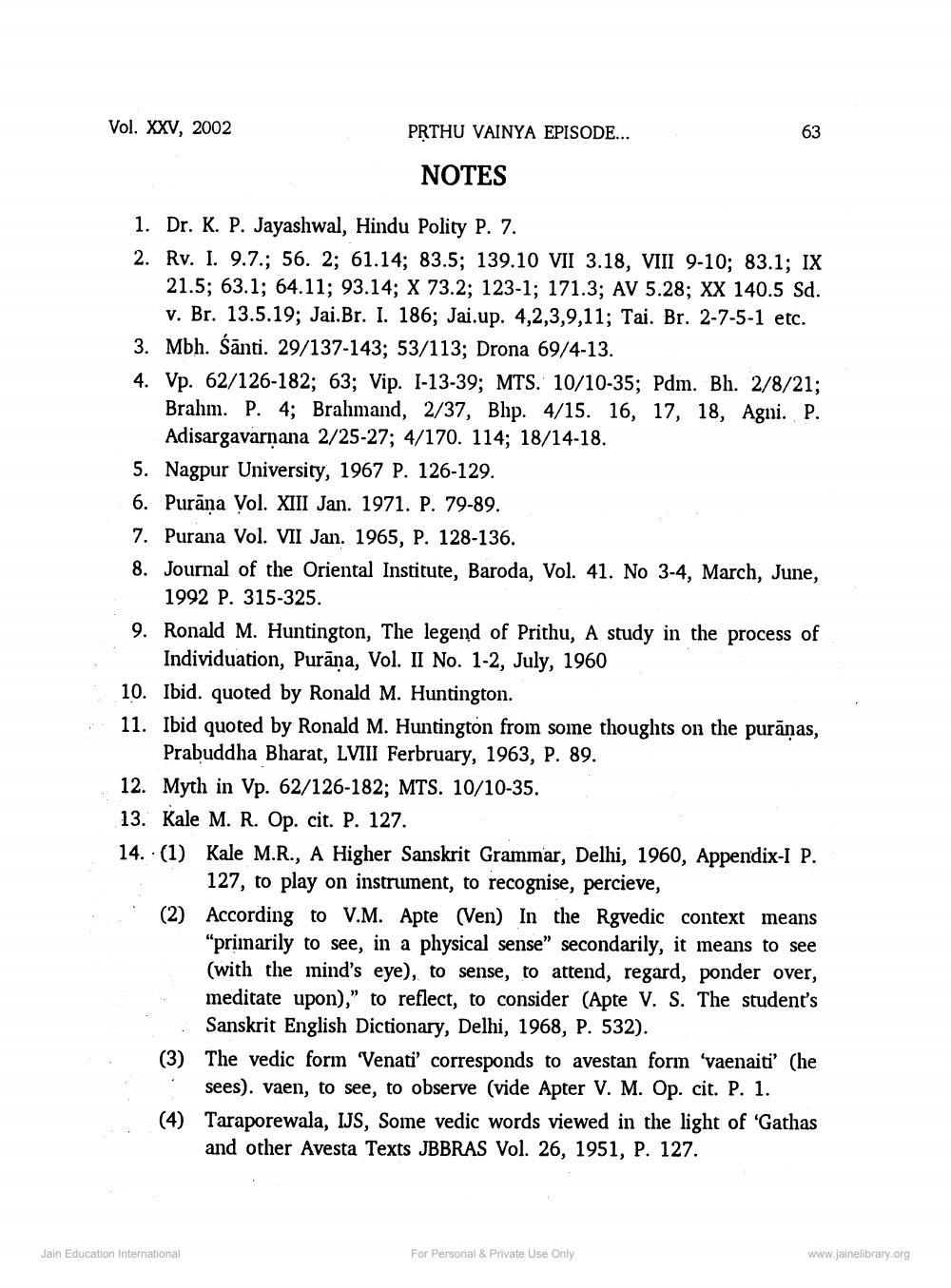________________
Vol. XXV, 2002
PŘTHU VAINYA EPISODE...
NOTES
1. Dr. K. P. Jayashwal, Hindu Polity P. 7. 2. Rv. I. 9.7.; 56. 2; 61.14; 83.5; 139.10 VII 3.18, VIII 9-10; 83.1; IX
21.5; 63.1; 64.11; 93.14; X 73.2; 123-1; 171.3; AV 5.28; XX 140.5 Sd.
v. Br. 13.5.19; Jai.Br. I. 186; Jai.up. 4,2,3,9,11; Tai. Br. 2-7-5-1 etc. 3. Mbh. śānti. 29/137-143; 53/113; Drona 69/4-13. 4. Vp. 62/126-182; 63; Vip. I-13-39; MTS. 10/10-35; Pdm. Bh. 2/8/21;
Brahm. P. 4; Brahmand, 2/37, Bhp. 4/15. 16, 17, 18, Agni. P.
Adisargavarnana 2/25-27; 4/170. 114; 18/14-18. 5. Nagpur University, 1967 P. 126-129. 6. Purāņa Vol. XIII Jan. 1971. P. 79-89. 7. Purana Vol. VII Jan. 1965, P. 128-136. 8. Journal of the Oriental Institute, Baroda, Vol. 41. No 3-4, March, June,
1992 P. 315-325. 9. Ronald M. Huntington, The legend of Prithu, A study in the process of
Individuation, Purāna, Vol. II No. 1-2, July, 1960 10. Ibid. quoted by Ronald M. Huntington. 11. Ibid quoted by Ronald M. Huntington from some thoughts on the purānas,
Prabuddha Bharat, LVIII Ferbruary, 1963, P. 89. 12. Myth in Vp. 62/126-182; MTS. 10/10-35. 13. Kale M. R. Op. cit. P. 127. 14. (1) Kale M.R., A Higher Sanskrit Grammar, Delhi, 1960, Appendix-I P.
127, to play on instrument, to recognise, percieve, (2) According to V.M. Apte (Ven) In the Rgvedic context means
“primarily to see, in a physical sense" secondarily, it means to see (with the mind's eye), to sense, to attend, regard, ponder over, meditate upon)," to reflect, to consider (Apte V. S. The student's
Sanskrit English Dictionary, Delhi, 1968, P. 532). (3) The vedic forin Venati' corresponds to avestan form 'vaenaiti' (he
sees). vaen, to see, to observe (vide Apter V. M. Op. cit. P. 1. (4) Taraporewala, IJS, Some vedic words viewed in the light of "Gathas
and other Avesta Texts JBBRAS Vol. 26, 1951, P. 127.
Prabudante
Jain Education International
For Personal & Private Use Only
www.jainelibrary.org




